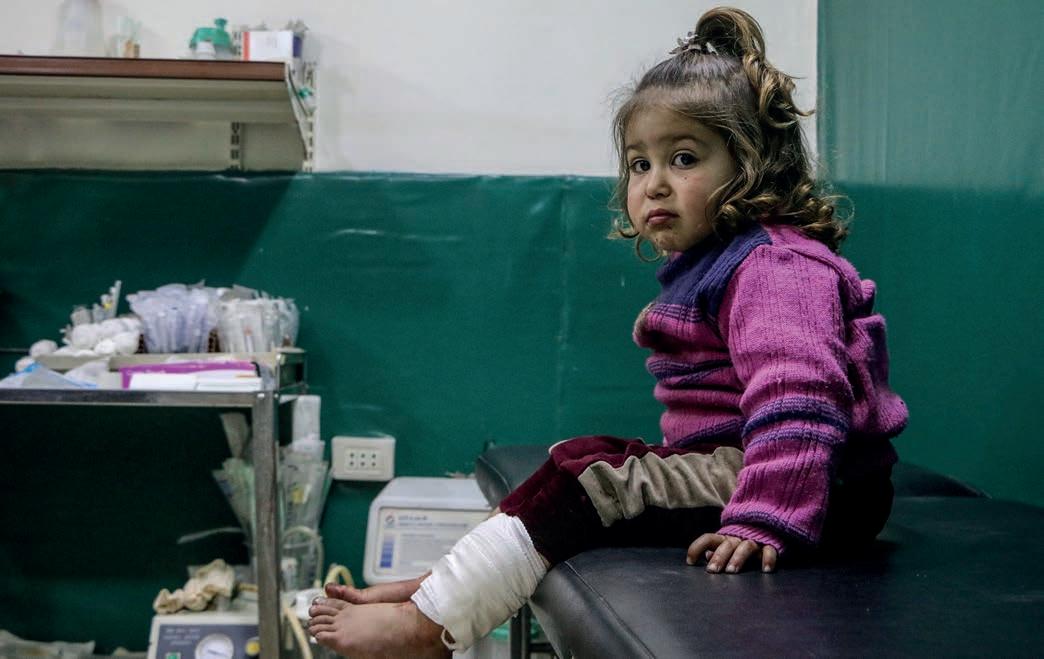DEVELOPMENT & GOVERNANCE
Beyond humanitarian aid: Connecting the dots with development oe.cd/obs/2GJ
©AFP/Mohammed Al Shami Anadolu
Cyprien Fabre, OECD Development Co-operation Directorate
Drought, floods, earthquakes, conflict, climate change: these are just some of the areas which humanitarian assistance is traditionally called on to address. Policymakers tend to consider shortterm humanitarian assistance and longer-term development assistance quite separately, yet they are two sides of the same coin. As we mark the annual World Humanitarian Day on 19 August, the OECD Lives in Crisis project provides some food for thought. Today’s humanitarian crises and conflicts are more complex than in the past. They last longer, generate massive population displacement and do not develop in smooth, linear ways. Shocks such as climate change can have an impact on many different areas simultaneously, from food security and health to political and social stability. As a result, the need
for emergency assistance is increasingly overlapping with long-term development needs: there is no longer a specific point in time when people’s needs cease to be “humanitarian” and instead become linked to “development”. Humanitarian needs are tied to development needs. In fact, they are often a direct reflection of the most serious development challenges. Humanitarian aid may not necessarily be the best instrument to meet people’s needs in crisis contexts. Despite this, the current international system relies almost exclusively on the provision of short-term, emergency humanitarian aid whenever a crisis occurs. The scale, complexity and longevity of most crises are straining today’s mechanisms for designing and funding
humanitarian interventions. Indeed, the 2016 World Humanitarian Summit called for a new, holistic paradigm for conceiving, programming and delivering humanitarian assistance. Three years later, there is still much to do to fully implement the reforms agreed at the summit, as the OECD “Lives in crises” project demonstrates. Together with its partner, Ground Truth Solutions, the OECD interviewed over 12,000 people either affected by crises or working as humanitarian field workers since 2016. Respondents were interviewed about their perceptions in seven different country contexts, all of which present different crises patterns, namely in Haiti, Lebanon, Iraq, Somalia, Afghanistan, Uganda and Bangladesh.
www.oecd.org/bookshop
The project gathered a number of striking
OECD Observer No 319-320 Q3-Q4 2019
23

















